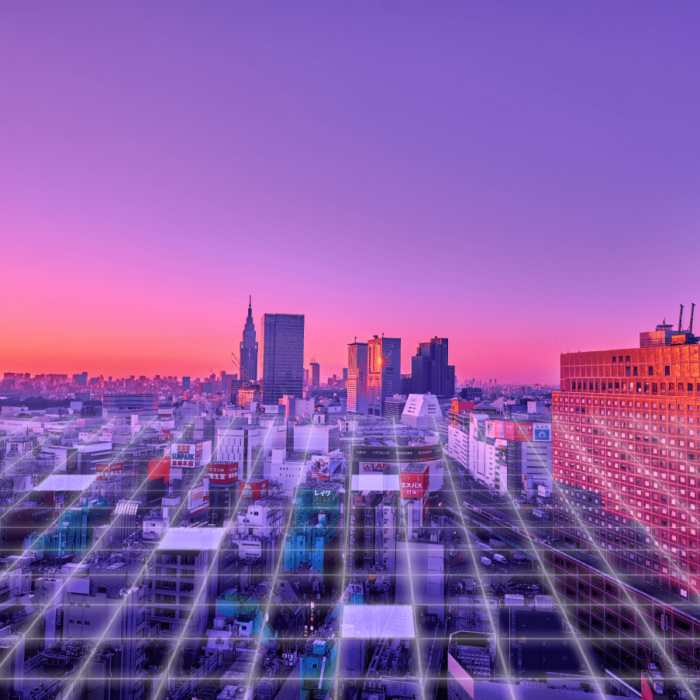
With the Internet of Places, smart cities can leverage the power of location-based data to advance environmental and economic sustainability.
This innovation will be the crowning achievement in the 21st century, making the everyday lives of citizens in different countries easier, fulfilling, and more secure.
For quite some time now, smart cities have been one of the dominant topics in technological advancements. It has been the mission of developed and developing countries to make their cities smart, connected, and resilient.
Through advanced digital technologies, city functions will be streamlined and optimized while keeping any negative ecological impact at a minimum. It can also help boost financial gains and improve citizen’s quality of life.
According to a study of the top 50 cities by McKinsey and Company, the top cities, including China and East Asia, can’t still meet a “fully comprehensive technology base” to serve the needs of smart cities such as better routing, geolocation, and addressing technologies —a critical infrastructure layer required for smart cities.
"Cities are exceptionally data-rich environments. The activation of the non-depleting data stream is instrumental in making the transition towards more sustainable city dynamics and more resilient urban environments. Yet infrastructure scarcity to connect, contextualize and activate location-based data persists. There is incredible potential in using location data to enable services from smart city logistics, mobility to urban planning."
Xander van der Heijden, CEO at UNL Tweet
The introduction of innovative technology such as new-generation mapping answers some of the challenges faced by smart cities. The Internet of Places (IoP) solves this problem by fusing the physical and digital worlds in a seamless, hyper-connected geospatial operating system where big data becomes smart data and locations can be programmed. These programmable locations enable hyper-local services from smart city logistics to mobility and autonomous drone and robot solutions.
UNL’s Internet of Places is a digital geodata twin of the physical world, where real-world locations become the next digital platform. The existence of this mixed-reality enables a revolution of hyperlocal and hyperconnected experiences, services and applications.
Within the Internet of Places, multiple stakeholders—including cities, governments, businesses, users, and machines—come together in a shared digital environment allowing them to connect, interact, and collaborate.
Mirroring the physical world into a smart 3D grid, UNL gives anyone and anywhere a unique, universal smart address, called a UNL geoID, along with data tools to enrich it with contextual data hyper-locally. From urban, rural, outdoor, indoor, and up in elevation, UNL pinpoints the exact location and shape of any area, venue or point of interest – ranging from km2 and m2 to up to 10 cm2.
Going a step further, UNL is making locations programmable. “Our platform allows businesses to embed and run scripts on location to power new kinds of immersive location-based apps and services, or create self-maintaining POI mechanisms.” explains van der Heijden.
Over the past years, there has been an unprecedented boom in e-commerce as more people are now buying and ordering online.
The current pandemic has also contributed to the growth of e-commerce. Because of this, more vehicles are going into various cities, contributing to traffic density and air pollution. The problem is that addressing even in big cities is still inconsistent and unreliable, resulting in incomplete or delayed deliveries and multiple trips to complete orders. The majority of failed deliveries and costs are associated with last-mile inefficiencies and the lack of critical first- and last-mile information.
With the Internet of Places, companies can now optimize the first and last mile by adding custom routing and delivery instructions such as private access codes and permits. Any added metadata is directly included in UNL’s new-age location-based search engine and into routing algorithms for indoor and outdoor navigation optimization. This can shorten the number of miles and time needed to complete a delivery.
Our technology can enable exact 2D and 3D delivery highways for autonomous robot and drone deliveries indoors and outdoors. This ensures that autonomous delivery vehicles will arrive at the exact intended location. Additionally, precise pick-up, take-off and landing locations can be indicated—increasing safe dispatching.
IoP provides a shared platform where stakeholders throughout the entire supply chain—from checkout to delivery to door—can connect, share data and collaborate to match capacity demand and optimize planning, speed up last-mile delivery and reduce the environmental impact of delivery vehicles.
With the Internet of Places, smart cities can leverage the power of location-based data to advance environmental and economic sustainability. It will provide the infrastructure to enable transparency across supply chains and collaboration across industries. The IoP will also connect data to enable smart logistics and power a truly autonomous future and micro-precise navigation. Most of all, 1:1 digital smart city twins can bring a real-time view of smart city dynamics and help secure safer and resilient urban environments through hyper-local applications from city planners to real-time crowd management tools.
Newsletter
Join the UNL community.
© 2023 UNL GLOBAL. All rights reserved.
Our Team can help you with:
Our Team can help you with:
Fill in your details and we’ll get back to you in no time.